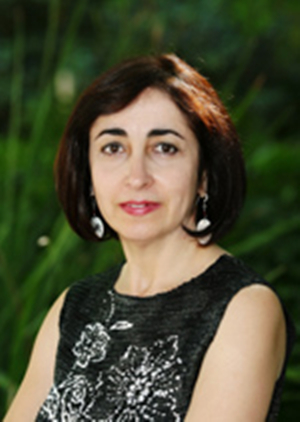
Isgouhi Kaloshian
Associate Professor
University of California, Riverside
活动家是第三方嘉宾邀约平台。可根据演讲议题、会议日期、活动预算等要求,为您提供该领域内专业嘉宾演讲邀约服务。您可准备好活动信息后,联系客服电话:18911802888(工作日9时至18时,仅邀约嘉宾出席活动,其他需求勿扰)
Dr. Kaloshian received her B.Sc. degree in Agriculture (1982) and M.Sc. in Plant Protection (1984) from the American University of Beirut, Lebanon. Her Ph.D. research in Plant Pathology at the University of California, Riverside, was entitled, “Genetics of resistance to Meloidogyne spp. in wheat,” which she completed in 1989. Following receipt of her doctoral degree, she pursued research as a Postdoctoral Fellow at UC-Riverside and UC-Davis. In 1996, she was appointed Assistant Professor and Assistant Nematologist in the Department of Nematology at UC-Riverside, where she currently holds the position of Associate Professor.Dr. Kaloshian has worked on host resistance to plant parasitic nematodes for much of her career. Her current focus is on nematode resistance in tomato. The tomato gene Mi is the first cloned plant resistance gene with dual specificity to two unrelated organisms, a nematode and an aphid. Her research group is currently pursuing two approaches to identify plant genes that control disease resistance. The first approach is to genetically dissect the Mi-mediated resistance pathway to both nematodes and aphids. She is using mutational analysis to identify and characterize plant genes that control nematode and aphid recognition and the subsequent expression of resistance. The second approach is to isolate nematode resistance genes with novel specificities. Currently only one nematode resistance gene, Mi, is present in cultivated tomato. The value of Mi has been compromised by the appearance at several locations in California and in other parts of the world, variants of nematode strains and species that can infect Mi-bearing tomato. Mi is not effective at temperatures above 28 C. She has initiated a DNA marker analysis as a step towards genetic mapping and cloning of new sources of resistance genes in the wild tomato species, Solanum peruvianum.
